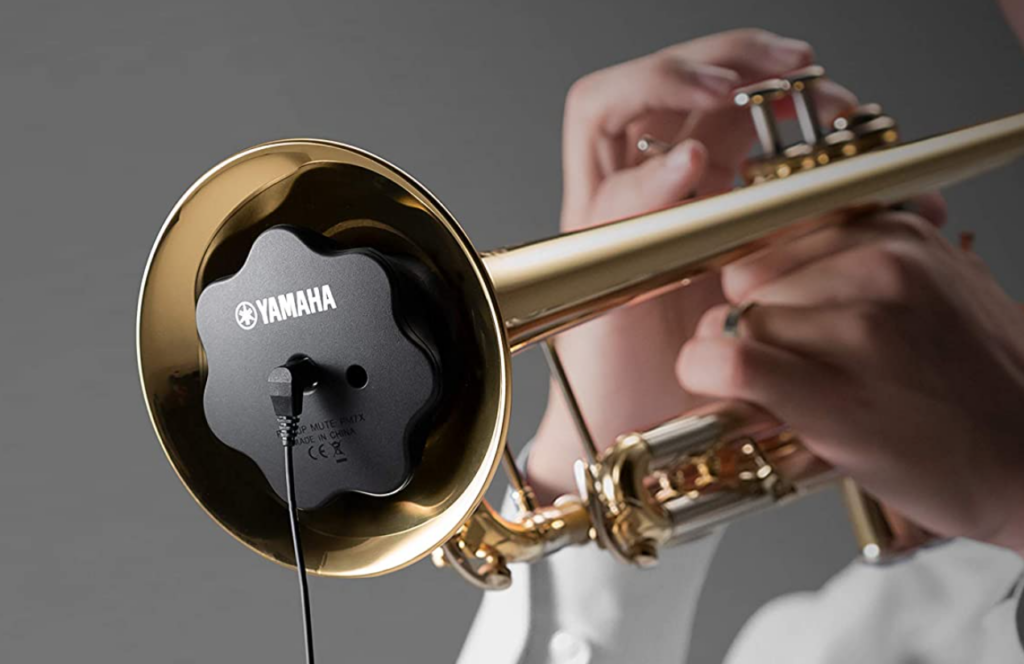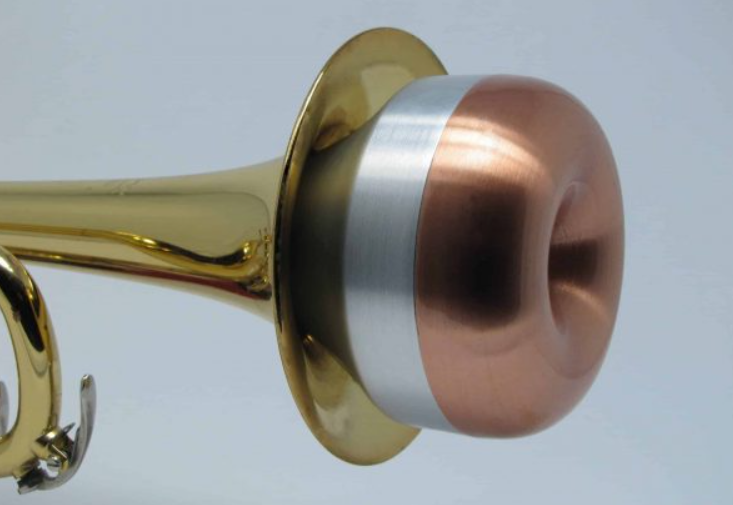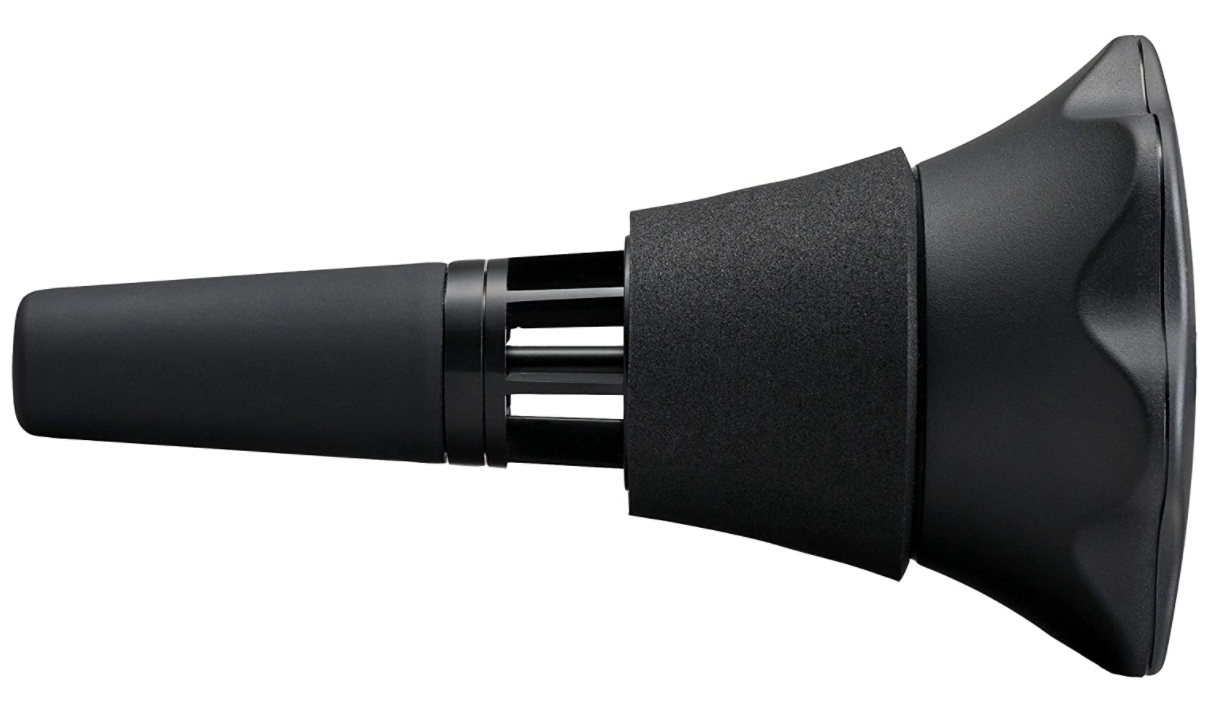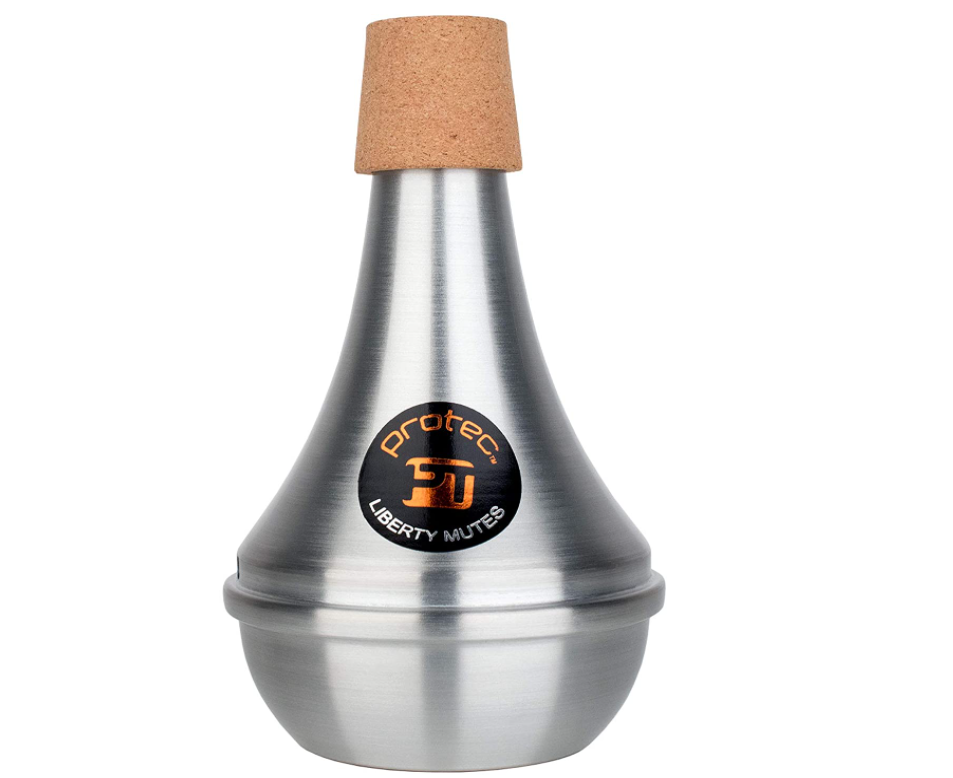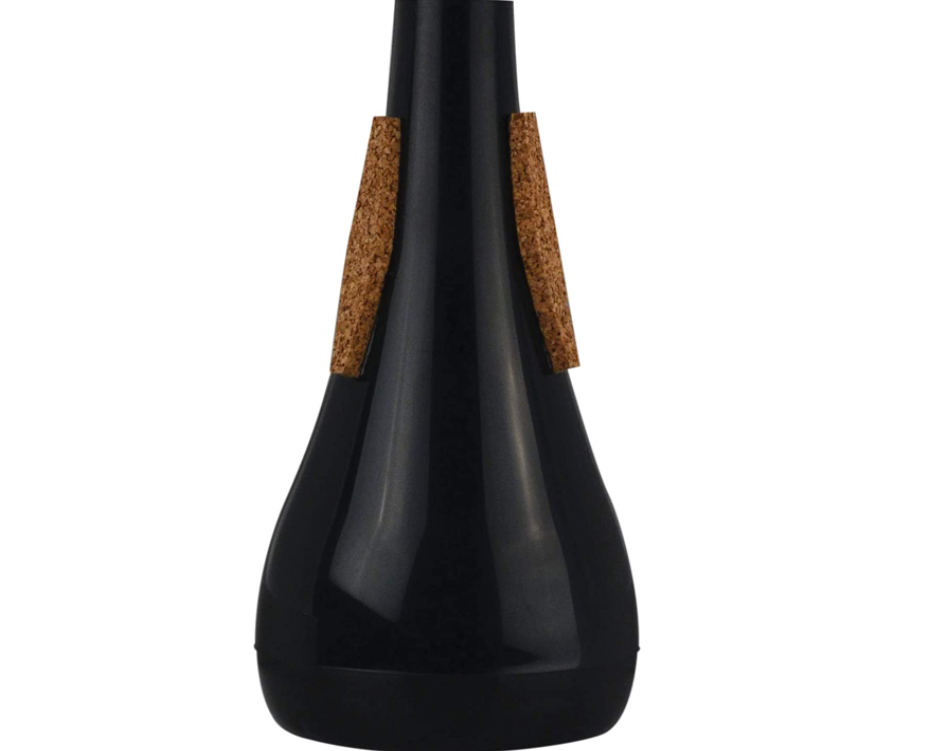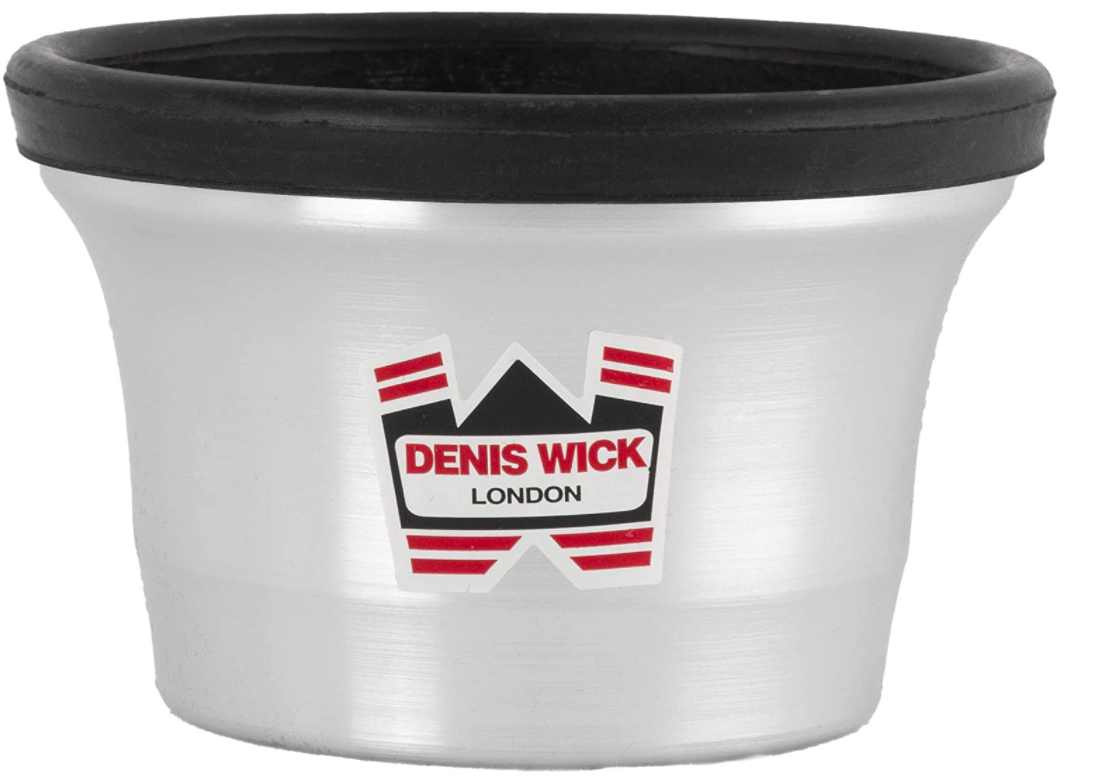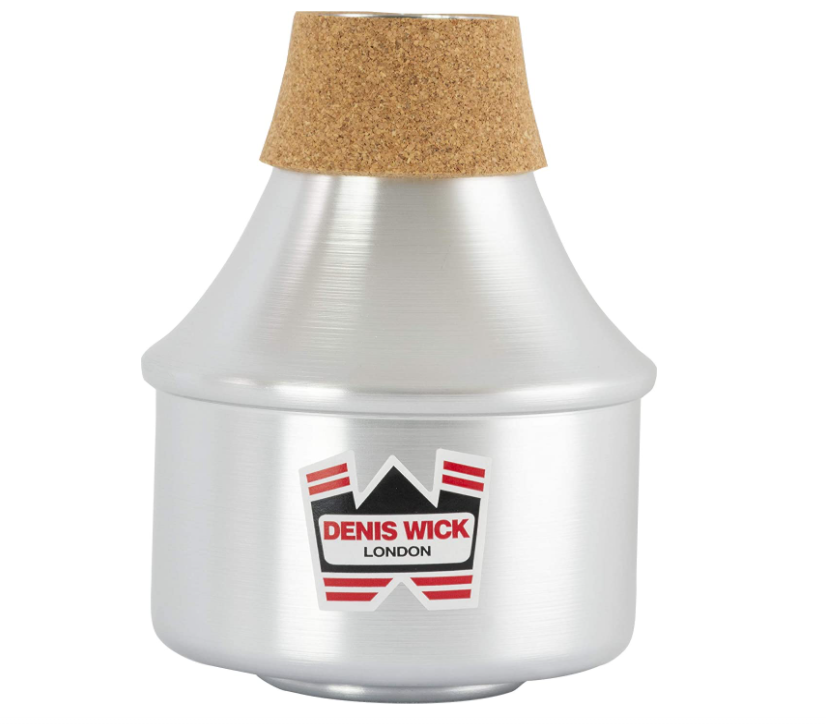- Best Double Bell Euphoniums Guide - September 30, 2022
- How to Find the Best Slide Trumpet - September 30, 2022
- Best Yamaha Euphonium Models Guide - September 26, 2022
Summary: Knowing how to find the best trumpet mute comes down to determining whether you need a practice mute to silence your rehearsals or something more advanced to use during rehearsals and performances.
If you are interested in changing the sound you get from your instrument, one of the easiest ways to do so is to figure out how to find the best trumpet mute. Trumpet mutes come in many different varieties, each of which is meant for different situations, and knowing your situation can help you pick the one that gives you the sound you want.
Who Needs to Know How to Find the Best Trumpet Mute?
There are many reasons why you might need a trumpet mute. When I was younger, I mistakenly believed that trumpet mutes were only used to do as the name suggests: to mute my trumpet. But I have since learned that trumpet mutes can be used by anyone not just to keep the sound quieter but also to change the sound produced by the instrument during performances.
Types of Trumpet Mutes
When you set about finding a trumpet mute, know that there are multiple types. They each serve a different purpose, creating different sounds or effects or limiting the sound that your instrument produces for practice situations.
Straight Mute
The most common type of trumpet mute is called a straight mute. This is usually what you would use as a beginner, the first type of mute you would put on your trumpet.
If you are reading music and you see that your trumpet music says “muted” or “con sordini,” it refers to this straight mute. The design can be fiber or metal, but the idea is to produce a buzzing sound.
Cup Mute
A cup mute is the next type. This is used in many different types of music, and it’s probably the second one you will purchase. When I first started, I invested in a straight mute and used that for at least 18 months before I had to up my game and invest in a cup mute.
This is different from a straight mute in that the shape is more of a cup at the end. With the cup mute, you might have what I have, adjustable parts so you can move the cup section closer to the bell of your instrument to close off the sound a bit more. I will admit, I don’t actually use my straight mute as much anymore because my cup mute can serve both purposes. I can remove the cup section on the mute I have, and then it functions precisely the same as my straight mute but this won’t necessarily work for everyone.
Harmon Mute
I had never heard of a Harmon mute, so I was caught off guard when someone asked me about it. As it turns out, I had, in fact, heard of a Harmon mute, but only by the name “ET” for “extending tube.” I remembered its name because I likened it to E.T. from the movie.
A Harmon mute can be called a “wah-wah” or an “ET” or even just “Harmon.” Whatever you call it, it is made of two separate parts and used by many professional trumpet players. There is the main part that you put in the bell and then the tube which, as the name I learned suggests, extends away from the rest of the instrument. As the tube is extended, it directly impacts the sound you get. You get the “wah-wah” sound when it gets extended entirely. But just like the other mutes, you can remove the extension and get a buzzing sound.
The video below shows what this sound can be like when played on your trumpet:
These are usually found in big bands or Jazz groups. The most common materials are inexpensive aluminum, copper, or similar metals. Aluminum represents the more affordable end of the spectrum, while copper represents the more expensive end.
Plunger Mute
Next on the list of potential mutes is the plunger mute. With this mute, you are basically holding a rubber plunger over your instrument. Doing so creates an even bigger wah-wah sound perfect for jazz bands and big bands. These are typically made of rubber.
Practice Mutes
Practice mutes are different from all the other options on this list because things like the plunger mute, straight mute, cup mute, and Harmon mute are meant to be used while you perform or play, but practice mutes are not. Practice mutes are just designed to reduce the volume or mute the sound you make with your trumpet so that you don’t disturb anyone else while you practice. This can also be good for classrooms where you are practicing sheet music with a large group and don’t want to overpower anyone else
How to Find the Best Trumpet Mute Materials
The type of material used for your trumpet mute will influence the sound you get. As mentioned, a straight mute is usually designed from fiber or metal, like aluminum. With things like a cup mute, you can find different materials based on different manufacturers, and each will modify the sound produced by your instrument ever-so-slightly. So it might behoove you to test different mutes from various manufacturers before you select one for your instrument.
When you learn how to play with different trumpet mutes, you open yourself up to making music more creative. A trumpet mute can help you play around with different sounds and sound effects, as demonstrated in the video below:
Best Trumpet Mute Recommendations
Knowing the different types, now you know how to find the best trumpet mute based on type and materials. That said, there are a few top selections that I prefer for different circumstances.
Yamaha SB7X2 Silent Practice Trumpet Mute
This Yamaha SB7x2 Silent Practice mute is just that: a practice mute to help silence your instrument. It comes with an internal microphone, a mini phone jack, and an electric condenser microphone. This means you can enjoy high-tech features that allow you to listen to yourself as you practice just using earbuds. The headphones that come with it are simple in nature, but you can practice at home blocking any extra sound so that it doesn’t reverberate off your walls and disturb your roommates, neighbors, or anyone else.
I love this particular model because Yamaha makes reliable materials and accessories for their instruments, and this trumpet mute is no different. If you need something to silence your trumpet but still practice at home, or you want something to silence the sounds of your child practice at home, invest in this trumpet mute.
I really like that you can connect a smartphone or any other device with audio playback features to this trumpet mute and play along to recorded music during your practice.
Pros
- Converts trumpet sound into headphones
- Silences your instrument
- Won’t disturb neighbors
- Can be used to play along with practice songs
Cons
- Not for performances
Pro-Tec Liberty Practice ML201 Trumpet Mute
If you want a simpler practice mute, something that doesn’t convert your music to headphones but instead just keeps it quieter, the Pro-Tec Liberty Practice mute is a good choice. If you need a practice mute, I suggest this for people on a budget. The Yamaha practice alternative is a good solution but an expensive one, and this is more in line with the average cost of a practice mute. I love that it weighs only 0.25 pounds with cork that wraps around the whole mute, not just part of the way around. This means more protection in the bell, which is better for kids who might not be as careful as they should be.
Pros
- Comes from a reputable trumpet company
- Well-balanced for all registers
- Made from aluminum
Cons
- Doesn’t silence your play; it makes it much quieter
Smaller than other practice mutes, so it doesn’t suppress as much sound
Bach 1860 Straight Trumpet Mute
The Bach 1860 Straight Trumpet Mute is a great starting mute for beginners. Though I recommend them primarily for intermediate designs, Bach is a highly reputable company. This is a very affordable option, which I love, made of polyethylene perfect for children or younger players who might be a little careless with their accessories.
Pros
- Durable and inexpensive
- Good for beginners
- Very lightweight
Cons
- Made with polyethylene instead of aluminum
Denis Wick DW5510 Plunger Mute for Trumpet
If you want a plunger mute for fun sound effects, the Denis Wick DW5510 is a good option. It gives accurate pitch and can be used by intermediate players and advanced players alike who want to create the sound effects the plunger mute can produce. This is one of the top three companies from which to choose, especially for intermediate players, so this is an excellent mute to add to your collection.
Pros
- Good for avant-garde and jazz sound effects
- Has PVC edges with aluminum body
- Warmer sound from interior
- Larger size, which gives a dramatic effect
Cons
- Beginners will have trouble with the pushback of air
Denis Wick DW5506 Extending Trumpet Mute
This Denis Wick DW5506 mute is an extending mute. This makes your trumpet slightly quieter without changing the pitch. It is excellent for people who are part of a jazz group or a big band and need to make that perfect “wah-wah” sound. Be advised that this extending trumpet mute is meant to be used during performances and is not a practice mute or something you should purchase if you’re just looking to quiet your rehearsals at home.
The design is lightweight and durable, giving an excellent sound for performances well suited to a range of music, especially jazz music and orchestra music.
Pros
- Extra-long inner tube which gives better tone
- Can be used completed, extended, or removed
- Made from aluminum
- Perfect for jazz
Cons
- Not suitable for beginners
FAQ
Answer: There are many good brands for trumpet mutes, depending on what you need. Yamaha is one of the top brands for inexpensive models, usually reserved for students and beginners. They have produced high-quality trumpet mutes for many years. Bach trumpet mutes are generally recommended for intermediate players. This company produces a range of seamless designs in different sizes. Denis Wick is another manufacturer quite popular among professional musicians.
Answer: The cost of a trumpet mute will vary based on which type you choose and what material it is made with. For example, the Yamaha practice mute, meant to silence your trumpet while you practice at home or with a group, is about $200. But you can expect to pay between $30 and $50 for other mutes depending on whether they are made with aluminum or copper. Copper is more expensive.
Answer: Practice mutes are very good if they are lightweight and responsive. Yamaha produces reliable, lightweight practice mutes that give you good intonation. You might have slightly sharper notes for low C and below, but you generally shouldn’t notice much of a difference in the sound quality. Instead, what you will notice is the ability to practice discreetly, without your roommates or neighbors even knowing that you are running through your music.
Bottomline
The bottom line is that you really need to experiment with different sounds produced by other trumpet mutes before you decide which one works best for your situation. If you are a student or brand new to the world of music, an essential practice mute might be all that you need but as you advance, consider investing in different trumpet mutes to produce a wide range of various sound effects.
For more interesting readings check out:


